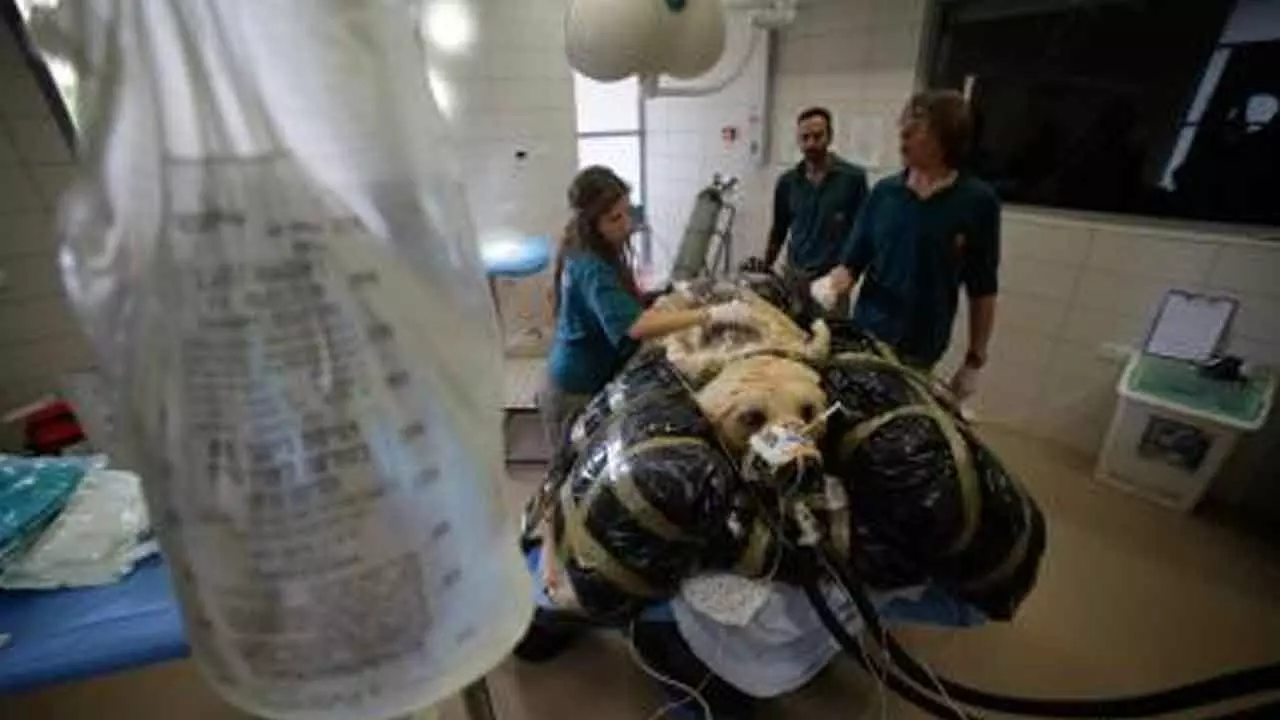Health
India Unveils Comprehensive Guidelines for Animal Blood Transfusion

In a significant advancement for veterinary healthcare, the Department of Animal Husbandry and Dairying (DAHD) introduced India’s first national guidelines for animal blood transfusion on March 18, 2024. This initiative aims to establish a structured framework for veterinary transfusion medicine, addressing a critical need in the sector.
Blood transfusions serve as essential medical interventions for animals, particularly in cases of trauma, severe anaemia, and infectious diseases. Previously, India lacked a formalized system for these procedures, leading to many transfusions being conducted only in emergencies, often without standardized protocols for donor screening or blood typing. The newly released guidelines provide a scientific and ethical foundation for all aspects of veterinary blood transfusion, including donor selection, blood collection, and safety measures.
The guidelines, developed in collaboration with the Veterinary Council of India, veterinary universities, and other stakeholders, set out a comprehensive approach to veterinary blood transfusion. This includes establishing state-regulated veterinary blood banks that comply with biosafety standards. Mandatory blood typing and cross-matching will help prevent incompatible transfusions, ensuring the safety and well-being of the animals.
Additionally, the guidelines outline explicit eligibility criteria for blood donors, which include health status, vaccination history, age, weight, and disease screening. They emphasize voluntary, non-remunerated donations with informed consent, supported by a Donor Rights Charter. By integrating One Health principles, the guidelines also address zoonotic risks, ensuring the safety of both animals and humans.
Establishment of a National Veterinary Blood Bank Network
The introduction of a National Veterinary Blood Bank Network (N-VBBN) is a cornerstone of the new guidelines. This network will feature digital registries and real-time inventories to better manage blood resources across the country, along with an emergency helpline to assist veterinarians in urgent situations.
Training modules will be made available for veterinary students and practitioners to ensure that they are well-equipped to implement these guidelines. This includes postgraduate programmes and continuing education opportunities to enhance the skills and knowledge of those working in the field.
Looking towards the future, the guidelines encourage innovative practices such as mobile blood collection units and advanced transfusion research. These innovations are expected to address the growing demand for specialized emergency veterinary care, which is crucial given India’s large livestock and companion animal population, estimated at over 537 million and 125 million, respectively.
The livestock sector contributes approximately 5.5% to India’s national GDP and over 30% to the agricultural GDP, underscoring its vital role in food security, rural livelihoods, and public health. By enhancing clinical care and animal welfare, these guidelines will play an essential role in preserving animal lives and supporting rural economies.
While the guidelines are advisory and non-statutory, they are designed to adapt over time, incorporating new scientific insights and feedback from stakeholders. This dynamic approach ensures that high standards of animal welfare and public confidence are maintained, making a lasting impact on veterinary healthcare in India.
-

 World5 months ago
World5 months agoSBI Announces QIP Floor Price at ₹811.05 Per Share
-

 Lifestyle5 months ago
Lifestyle5 months agoCept Unveils ₹3.1 Crore Urban Mobility Plan for Sustainable Growth
-

 Science4 months ago
Science4 months agoNew Blood Group Discovered in South Indian Woman at Rotary Centre
-

 World5 months ago
World5 months agoTorrential Rains Cause Flash Flooding in New York and New Jersey
-

 Top Stories5 months ago
Top Stories5 months agoKonkani Cultural Organisation to Host Pearl Jubilee in Abu Dhabi
-

 Sports4 months ago
Sports4 months agoBroad Advocates for Bowling Change Ahead of Final Test Against India
-

 Science5 months ago
Science5 months agoNothing Headphone 1 Review: A Bold Contender in Audio Design
-

 Top Stories5 months ago
Top Stories5 months agoAir India Crash Investigation Highlights Boeing Fuel Switch Concerns
-

 Business5 months ago
Business5 months agoIndian Stock Market Rebounds: Sensex and Nifty Rise After Four-Day Decline
-

 Sports4 months ago
Sports4 months agoCristian Totti Retires at 19: Pressure of Fame Takes Toll
-

 Politics5 months ago
Politics5 months agoAbandoned Doberman Finds New Home After Journey to Prague
-

 Top Stories5 months ago
Top Stories5 months agoPatna Bank Manager Abhishek Varun Found Dead in Well









